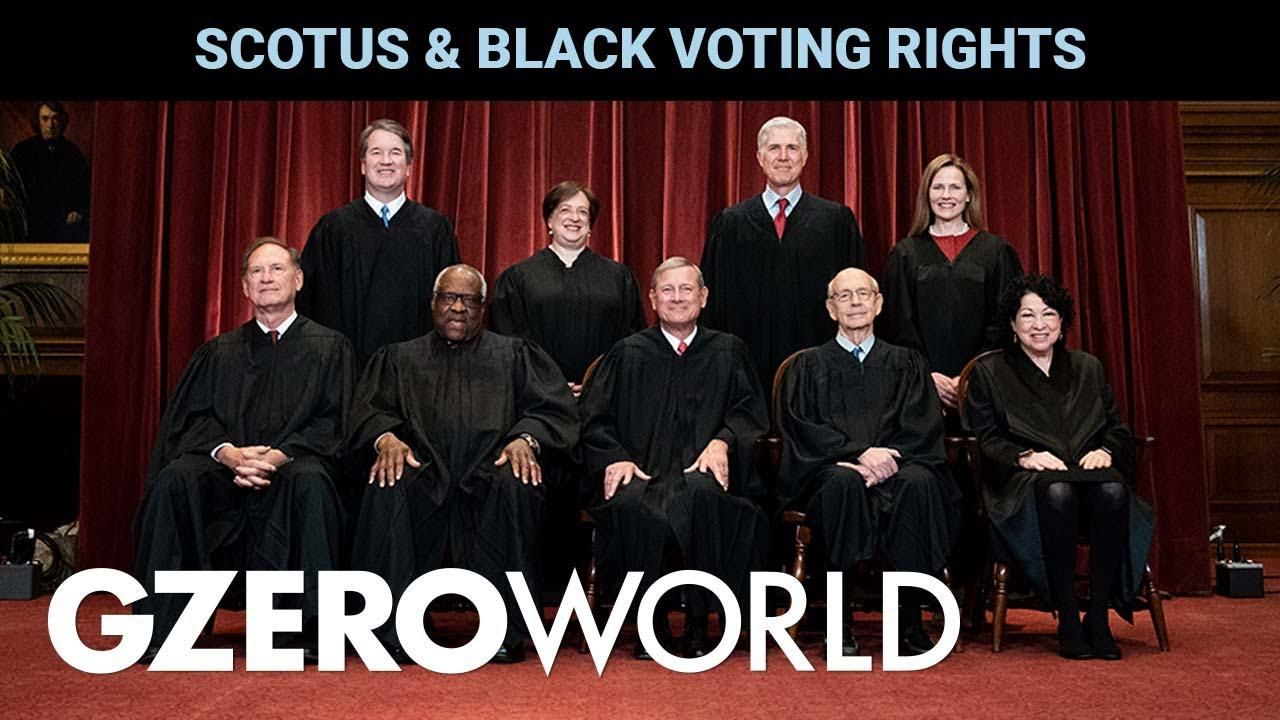GZERO World Clips
The Supreme Court’s role on Black voting rights

The Supreme Court’s Role on Black Voting Rights | GZERO World with Ian Bremmer

When the 1965 Voting Rights Act was passed, Pulitzer Prize-winning columnist Clarence Page had just finished high school. This legislation changed the lives of Black people in America because Jim Crow laws had virtually prevented Blacks from voting in the South, he said in an interview with Ian Bremmer on GZERO World.
But in 2013, the Supreme Court gutted the law by taking away pre-clearance for states, which had blocked states — especially the former Confederate ones — from changing their voting laws based on racial discrimination.
At the time of the SCOTUS ruling, Chief Justice John Roberts said pre-clearance wasn't needed anymore. But many disagree.
Now, Page says Republicans tend to benefit from making it harder to vote, while Democrats want to make it easier.
"We're getting right at the heart of what democracy is all about, when we're at loggerheads over who should be allowed to vote and, and who shouldn't."
Watch this episode of GZERO World with Ian Bremmer: Black voter suppression in 2022
15: The number of migrants who died after their boat accidentally collided with a Greek Coast Guard vessel in the Aegean Sea on Tuesday. Two dozen people were rescued.
Walmart is investing $350 billion in US manufacturing. Over two-thirds of the products Walmart buys are made, grown, or assembled in America, like healthy dried fruit from The Ugly Co. The sustainable fruit is sourced directly from fourth-generation farmers in Farmersville, California, and delivered to your neighborhood Walmart shelves. Discover how Walmart's investment is supporting communities and fueling jobs across the nation.
Democratic Alliance leader John Steenhuisen announced Wednesday that he will not run for a third term as leader of the liberal, pro-business party, after months of internal pressure over a host of controversies – including allegations, since cleared, that he used the party credit card for Uber Eats.